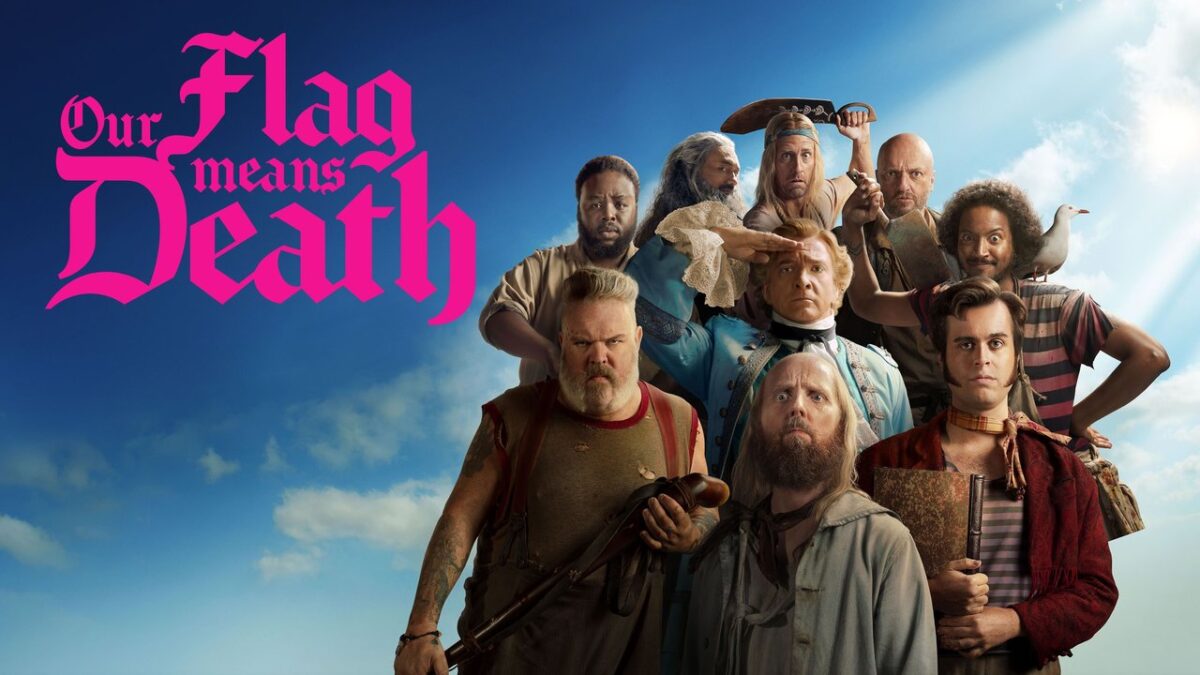The Golden Age of Piracy is one of those historical topics that continue to fascinate children, adults, and academics in equal measure. In his Villains of All Nations, historian Marcus Rediker explores how the various phases of New World piracy were birthed by both geopolitical conflict and the desire of men to escape the repressive confines of contemporary maritime society. The pseudo-democratic format of crews, (relative) prevalence of women, and even the transgression of gender and sexual norms all make 17th and 18th-century pirates endless sources of fascination. Add in a captain that bucks even these trends and an iconoclastic director like Taika Waititi, and you have yourself the makings of a delightful television series.
HBO’s Our Flag Means Death tells the tale of Stede Bonnet the “Gentleman Pirate” (Rhys Darby), a minor English nobleman from Barbados who took to a life of piracy despite his considerable estate. Somewhat successful plying the eastern seaboard of North America, Bonnet was severely wounded in an encounter with the Spanish in 1717 and subsequently turned his ship and crew over to Edward Teach, better known as Blackbeard, co-captaining with this most infamous of pirates for many years.
The historical Bonnet’s motivations have always been obscure, but for Waititi, this intriguing decision for someone at the top of society to take up piracy, not to mention a complex relationship with his societal opposite in Teach, makes for the perfect setting for a romantic dramedy. Dharby’s Stede becomes a well-meaning fop of a nobleman who abandons his estate not to make money but because he has never fit in and romanticizes a life of piracy on the high seas where he can be himself. That true self ends up being an ironic rejection of all the usual characteristics of piracy; Stede provides his crew (made up largely of similar societally-impotent misfits) a regular salary, lifestyle amenities such as rec rooms, crafting time, and a library, and generally avoids conflict in consideration of their (and his own) welfare.This quickly leads to talk of mutiny, but the attentions of the enigmatic Teach (played by Waititi himself) lead not only to the shaping up of Stede’s crew but a relationship that, while initially underpinned with ulterior motives, blossoms into a fully-fledged romantic relationship that elevates both Bonnet and Teach as people–with no end of ridiculous hijinks on the way.
While Our Flag Means Death is essentially ahistorical in its narrative, it is, crucially, not unhistorical. Filled with historical cameos and mostly-faithful material culture and costuming (Stede’s khaki treasure hunting outfit in episode 7 notwithstanding), the show also recreates Bonnet’s historical journey surprisingly faithfully. It should also bear noting that the show’s multiple gay romances have some precedent, both in the historical period and in previous pirate shows; indeed, the plot of the magnificent Black Sails (reviewed here on Concerning History) essentially hinged on it.
Attempts to restore LGBT people to classic genres of period media have recently met with high-profile pushback, but in Our Flag Means Death viewers can find not only an emphatic response to this pushback but a long-overdue refutation of these genres’ romanticization in general. While Waititi’s style of humor can be something of an acquired taste, Our Flag Means Death offers a delightful, paradoxically unorthodox-yet-spiritually faithful jaunt through one of history’s most popular eras.
